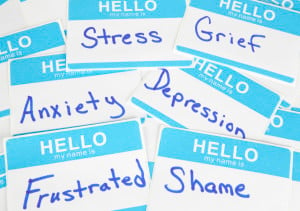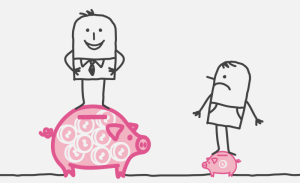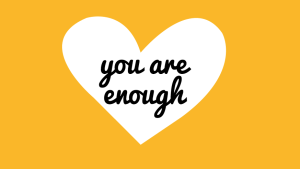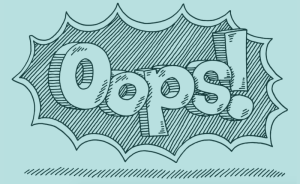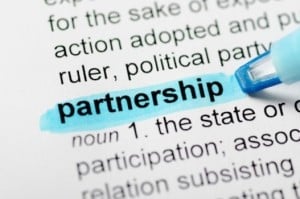
Source: Design Shack
As I was thinking through what I might say in this article, I found myself sitting in the back of a classroom, observing a teacher in a school where I was offering some bullying-prevention training.
While the teacher was engaging the students in a discussion on the foundations of Judaism for a World Religions class, I noticed that a young man was wearing this t-shirt:
For the next ten minutes or so, I considered what I could say to engage this young brother in a discussion about the impacts of his choice in t-shirts.
After all, he undoubtedly wears it to court attention, so a confrontation or preachy approach surely isn’t the best route. And I wasn’t sure of the best question that I could ask him to get him thinking about the problematic nature of his shirt.
Then the bell rang, and he quickly grabbed his things and ran out the door, disappearing into a mass of students before I could get his attention.
As I sit here hoping that one of the other men in his life calls him into a discussion, I am still not sure what I would have said to him, but I do know that the route that would likely be most successful in encouraging critical thought would be one that calls him to reconsider what it means to be a man.
After all, I know that I’m more likely to critically engage when someone calls me in rather than simply calls me out. Sure, calling him out would have felt good, but calling him in may have led to change.
That said, the “calling in” conversation isn’t likely to be a discussion I could have with him in passing, for a reconsideration of masculinity and gender isn’t exactly the stuff of hallway banter in a busy high school.
Meeting Men Where They Are
Yet reconsidering mainstream masculinity and its role in a wider system of gender oppression is one more of us as men need to take up in all of its nuance and complexity.
And yet without fail, every time I have written something addressing the need for a new masculinity – one not rooted fundamentally in oppression, violence, and power over others – someone offers a comment or an e-mail about how my efforts are misguided.
They argue that the problem is not just in masculinity, but in gender as a whole, and if we really want to end gendered oppression, we have to “blow the whole thing up.”
While these comments are often quite thoughtful and give me much upon which to reflect, I still cannot really get behind the simple “Let’s just destroy gender” argument for one main reason: I don’t find it helpful for meeting most people where they are.
If my goal is to engage men, and mostly cisgender men, in participating in the movement to end patriarchal oppression, telling men that we should just end gender doesn’t get me very far.
Further, the “destroy gender” argument, while rooted in sound theory, doesn’t (at least as I’ve seen it offered) effectively address the ways in which people of all genders are invested, both positively and negatively, in current constructions of gender.
Thus, while my ideas may be evolving, it’s possible that I simply see the need for construction of a new masculinity as part of the journey toward the reimagining of our current notion of gender altogether, but that doesn’t mean that we as men shouldn’t invest earnestly in transforming what it means to be a man.
A Personal Investment in Realizing Change
Let’s call a spade a spade: As it currently exists, masculinity is fundamentally an expression of patriarchal oppression. But it doesn’t have to be that way.
However, until men understand our stake in transforming masculinity, of working against the system that offers us tremendous privilege, absolutely nothing will change.
As much as the women I know would like to see more expressions of a nonviolent, positive masculinity grounded in feminist praxis (to borrow Paulo Freire’s educational term describing the intersection of reflection, theory, and practice), there’s no amount of wishing and hoping or work that women-identified people can do to change how masculinity functions as a tool of oppression without also engaging men in the work to transform masculinity.
As men, we must call our brothers into an understanding of what we gain from reimagining and reconstructing masculinity in our lives and our relationships.
And while surely part of that work must be related to and grounded in the wider feminist struggle of female- and non-binary-identified people to realize justice (as has been called for by fantastic men like Jackson Katz, Tony Porter, and many others), if our praxis rests solely in the other, in those other people impacted by patriarchal dominance and violence, how much investment can we truly have in actually changing a system that benefits us?
Our work to change masculinity has to be grounded in more than paternalism or accountable relationships across difference (though the latter is vital). Our work to transform masculinity must be grounded in ourselves and our stories.
After all, whether we can name it or whether we acknowledge it, the current masculine paradigm is toxic. It hurts us (though clearly not in the same ways or in proportion to how it hurts women and gender-Queer-identifying people).
Masculinity as we know it inhibits our ability to build loving relationships with people of different genders and with those who also call themselves men.
Masculinity as we know it prevents us from seeking the healing that we need, whether that’s healing from the impacts of violent pornography or from our emotional disconnection or from our own experiences of trauma and violence.
Why Feminism Must be Central to the Transformation of Masculinity
One of the reasons that the Men’s Rights Movement (MRM) has gained momentum is that it does speak to the hurt and insecurity that men feel.
Sadly, though, it seems that the pro-male movement and MRM speak most often to those hurts, insecurities, and costs at the expense of anyone who doesn’t identify as male and without any real analysis or consideration of systems of power and oppression. And in doing so, they simply reinscribe traditional, toxic masculinity.
It’s important, then, that a new masculinity be more than a simple recreation of the same systems of dominant power we see in the current masculine paradigm.
As J.A. McCarroll puts it in this brilliant critique of “dude feminism,” a new masculinity must do more than create “a sort of masculinity triage, trying to eliminate violence against women, while still flattering men with the label of protector.”
What we need to remember is that the MRM is not the only movement that calls for the needs of hurting men to be addressed. Most (dare I say all?) feminists and pro-feminist people recognize the need for a transformation of all gender roles as part of the work to change the system of patriarchal oppression.
The vast majority of feminism is not so much anti-male as it is anti-traditional masculinity, as well it should be because of how traditional masculinity hurts everyone!
After all, one of the most common stats that MRAs like to roll out is how men are far more likely to be victims of violence in society than women (though often they ignore that Trans* and non-binary people are those most likely to be violently attacked), but their analysis ignores how that violence stems from a violent masculinity: We are experiencing violence primarily at the hands of other men!
Who fought to make federal definitions of sexual violence more inclusive? Feminists.
And despite some common perceptions, the vast majority of feminist anti-violence support services (like sexual violence and domestic violence centers and hotlines) are inclusive of male survivors and are working to improve their practice all the time.
Absolutely, the hurt and insecurity that male-identified people feel is sometimes written off with the “Well, boo hoo, do you see the oppression that women and Trans* or gender-nonconforming people are dealing with?”
After all, there is a disproportionality of suffering in our patriarchal system.
But that suffering, that trauma to our souls and our bodies, is not always solely gendered, and those truly fighting for justice recognize that we must redefine our gender norms to realize social change.
Emerging from Hurt into a New Masculinity
Whenever people ask why I am involved in the movement against sexual violence, I offer an equivocal response relating to the people in my own life who have been hurt and that describes the ways I’ve seen the impacts of sexual violence first hand.
I usually also offer some acknowledgement of my understanding of my role as a man in ending sexual violence that is primarily committed by those who share my identity. And those are great reasons for some male-identified people to be a part of the movement.
But for me, it also extends much deeper, and it extends into the destructive role that masculinity has played in my own life.
From hypermasculine posturing almost ending a relationship with one of my best friends to masculine entitlement hurting my romantic relationships with women to masculine socialization restricting my fullest expression of self, the ways in which I’ve been taught to be a man have been far from the most positive influences in my life.
But it wasn’t until recently that I truly understood just how deeply toxic masculinity has impacted me.
Of late, I’ve been sorting through some memories, perhaps the most painful memories I hold. I’m not always clear on what happened, as these images are clouded in disassociation. And while I have for some time doubted whether or not it really happened, I have come to understand one of the core reasons that I, and sadly one in six other men, need a transformation of masculinity.
I am a survivor of childhood sexual abuse.
And like most survivors of sexual violence, this trauma was committed by a man that I trusted, one of the men in my life most committed to traditional constructions of masculinity.
I have not shared this publicly before, and I need to be clear about why I do so now: The memories of this trauma that have led to midnight panic attacks are rooted fundamentally in destructive, poisonous masculinity.
In A Language Older than Words and in A Culture of Make Believe, Derrick Jensen (an author whose writing I love but who I’ve recently struggled to support considering his cissexist and Transphobic actions) helped me to understand that so long as our identities are intricately tied to asserting power over others, as masculinity in the context of Western patriarchy surely is, we cannot ever truly realize healthy constructions of self or healthy relationships.
In short, we need a new way to understand ourselves as men.
And when I reflect deeply on my own hurt, I know that there are men like me who need a new expression of our gender. And I know without a shred of doubt that the “Men’s Rights Movement” and all of its investment in toxic masculinity, misogyny, and misplaced rage is not the place for me to find healing.
And so I turn to my feminist community, a place where I know I will not only be held accountable, but where I will also find unending compassion and love, not only from female-identified people, but from people all across the gender spectrum, including from men who share my desire to see a new masculinity.
There is much good that comes with how I’ve been socialized to be a man – brotherhood, strength, courage, and tenacity – which is why I don’t simply believe the answer, at least initially, is to abandon gender altogether.
Instead, I want to see a masculinity where love, power with, and compassion replace dominance, power over, and violence, a masculinity where some of those good messages I learned from the men in my life endure while leaving behind the destructive things that hurt me and so many other male-identified people.
***
So when I think back to what I would have said to that young man with the t-shirt, I’m not sure. But I do know that what I wanted to say is more than simply “Do you understand how much that shirt hurts women?”
I wanted to find a way to help him understand how that expression of power over is indicative of a sickness, one that hurts us all, one that will ensure we continue to hurt if we don’t all explore our investment in fundamentally transforming masculinity as we know it.
Because doing so might help him understand his own investment in transforming what it means to be a man. And it might help me come closer to knowing a different masculinity for myself.
[do_widget id=”text-101″]
Want to discuss this further? Login to our online forum and start a post! If you’re not already registered as a forum user, please register first here.
Jamie Utt is a Contributing Writer at Everyday Feminism. He is the Founder and Director of Education at CivilSchools, a comprehensive bullying prevention program, a diversity and inclusion consultant, and sexual violence prevention educator based in Minneapolis, MN. He lives with his loving partner and his funtastic dog. He blogs weekly at Change from Within. Learn more about his work at his website here and follow him on Twitter @utt_jamie. Read his articles here and book him for speaking engagements here.
Search our 3000+ articles!
Read our articles about:
Our online racial justice training
Used by hundreds of universities, non-profits, and businesses.
Click to learn more









